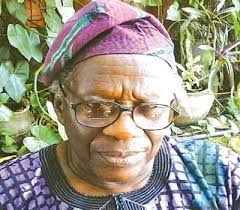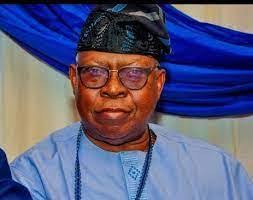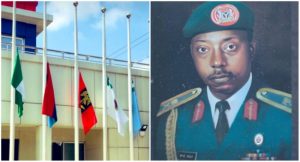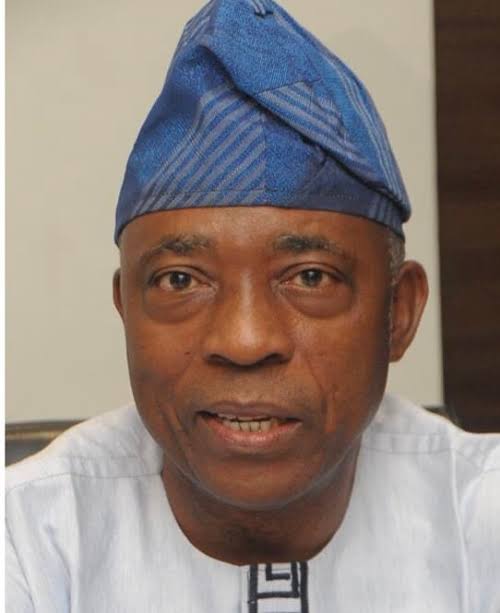By Dare Babarinsa
We are in the Ember months and the harmattan wind hangs in the air like incubus. Nigerians believe that the Ember months, that is the months starting from September to the closing days of December, are the period when the Grim Reaper is especially busy.
There is no doubt that the people of Egbaland in Abeokuta would know that the Grim Reaper had been especially busy in the past few weeks. Mrs Alaba Lawson, an educationist and business leader, died on October 28, 2023. Mrs Lawson, was a social force and leading light of the Egba traditional establishment.
So was Dr Onaolapo Soleye, one of our country’s leading economists, who was a university teacher before he became the Minister of Finance during the regime of Major-General Muhammadu Buhari in 1984. Since leaving office in 1985 following the coup that toppled Buhari, Soleye had held many other offices. He died on November 15.



Unlike Soleye, Ekundayo Opaleye, who retired from the army as a major-general, was a soldier through and through. He stepped into the limelight in 1986, when he became a member of the military tribunal that tried Major-General Maman JiyaVatsa and others for allegedly plotting to topple the new regime of General Ibrahim Babangida.
After he completed that assignment, he was appointed the Military Governor of Ondo State in August 1986. He held the office for a little above one year and was redeployed in December 1987. Though his stay in office was brief, he was well regarded by the people of Ondo State who credited him with temperance and credible administration.
Opaleye was to serve in many other roles both nationally and on the international fronts. In 1991, he was appointed the commander of the Neutral Military Organisation (NMOG), set up by the Organisation of African Unity (OAU), to bring peace between the warring factions in the Rwandan Civil War, which pitched the Tutsi against the Hutu.
When the world body set up the United Nations Assistance Mission for Rwanda (UNAMIR), Opaleye was given the responsibility of integrating NMOG with the new group. Opaleye was pivotal in ensuring that the Arusha Peace Accord of August 4, 1994, which brought to an end the Rwandan Civil War, was signed.
Since his retirement, Opaleye took a more public role in the affairs of his native Abeokuta, becoming the Balogun Erunmu, a traditional war chieftaincy among the Owu of Egbaland. His high-profile involvement in local matters led to some controversies.
With his death, the ranks of former military rulers of Ondo State had been depleted again. There are now only four left: Group Captain Ita David Ikpeme, the first military governor, who was appointed in 1976 under General Murtala Muhammed and General Olusegun Obasanjo, Brigadier Raji Rasaki, who was military Governor between December 1987 and July 1988, Commodore Olabode George, who served between July 1988 to September 1990 and Colonel Moses Fasanya, the Military Administrator from 1998 to 1999 who handed over power to elected Chief Adebayo Adefarati in 1999.
In addition to Opaleye, those who have since passed on are Brigadier Sunday Tuoyo, who died in 2022; Commodore Bamidele Otiko, December 1999; Admiral Michael Okhai Akhigbe, October 2013; Navy Captain Sunday Abiodun Olukoya, August 2021; Colonel Mike Torey, November 16, 2023 and Navy Captain Anthony Onyearugbulem, who died in 1998.
Major-General Mohammed Chris Alli, who died on November 18, 2023, served in the same Babangida regime like Opaleye. From 1985 to 1986, he was the Military Governor of Plateau State. Alli was one of those leading military officers who played prominent roles in the convoluted events of 1993 following the annulment of Chief M.K.O Abiola’s victory in the presidential election of that year.
The annulment divided the nation as well the armed forces and everyone knew something must give. In the end, General Ibrahim Babangida was forced to step aside on August 27, 1993 and he left behind an ungainly political structure headed by Chief Ernest Shonekan, a board-room impresario, as the Head of the Interim National Government (ING).
At that time, Nigeria had elected governors, states and national assemblies and local government council, but it did not have an elected President. The logjam was resolved by Chris Alli and his colleagues in November 1993, when they staged a coup to topple Shonekan and instal General Sani Abacha in power. Therefore, in one single year, Nigeria had three Heads of State: Babangida, Shonekan and Abacha.
It was apparent from the beginning that Shonekan’s regime was an abiku; born to die! Chief Abiola, the President-presumptive got in touch with a group of military officers led by the then Minister of Defence, General Sani Abacha. These officers had promised that they would restore civil rule once Shonekan was toppled. Abiola believed them.
Apparently, the group led by the late Lt. General Oladipo Diya, which included Alli, believed it was right and necessary to restore the victory of Abiola once the Shonekan regime was toppled. Once Shonekan was toppled, Abacha, however, decided that it was better to dig in instead of having an exit strategy.
Diya, Alli and their other colleagues who had promised a brief tenure, felt they were taken for a ride. Alli was appointed the Chief of Army Staff while Diya was made the Chief of General Staff and deputy to Abacha.
By January 1994, it was becoming clear that Abacha had no intention of leaving power. Yet few days after the coup, Diya had told journalists in Lagos that “Our stay will be brief.”
It was apparent to those in the power loop that Diya, Alli and the Chief of Naval Staff, Rear-Admiral Allison Amaechina Madueke, were not in agreement with Abacha. They wanted the military to honour its pledge to Abiola, who was now waiting in vain to retrieve his mandate from his ‘friends’.
Many Nigerians, including his former commanders, have underestimated the complex personality of Sani Abacha. That was what happened to Lt. General Theophilus Yakubu Danjuma, who as Chief of Army Staff, had the opportunity to retire Abacha for incompetence, but then spared him.
Diya and Alli, in the early days too had the opportunity to remove Abacha in 1994 when it was becoming apparent that he had no intention of leaving power. They hesitated. Then Abacha struck, sacking Alli and Madueke, the Chief of Naval Staff. From that point on, the regime became a one man show and Diya, who had survived, was a marked man.
Since he was removed as Chief of Army Staff, Alli lived in the shadow of his old office. He stayed severely off the radar of politics. During the struggle against Abacha dictatorship, he knew he was being watched by Abacha agents, and he went fully out of the way. He knew the capacity for evil of those who were now the leading members of the Abacha court.
As a former Director of Military Intelligence (DMI), he was much aware of the danger of being heard or seen in the wrong place or with the wrong company. He became an invisible man. Even at that point, his shadow would not follow him.
He emerged briefly in 2005 when President Obasanjo appointed him the Administrator of Plateau State, following the crisis in that state which led to the suspension of Governor Joshua Dariye and the imposition of Emergency Government. He proved to be a firm and effective ruler and within some few months, he had brought calm, if not real peace, to Plateau. Then he went back into the shadows. Chris Alli was an achiever who did many good and laudable things.
When those who know refused to tell the truth, then those who don’t know would be given the opportunity to fill the gap with untruth. One of those who could tell us the truth about the transformation of Abacha into a fearsome ogre was Chris Alli. Now he is gone with his story. May his soul rest in peace.
Share your story or advertise with us: Whatsapp: +2347068606071 Email: info@newspotng.com









